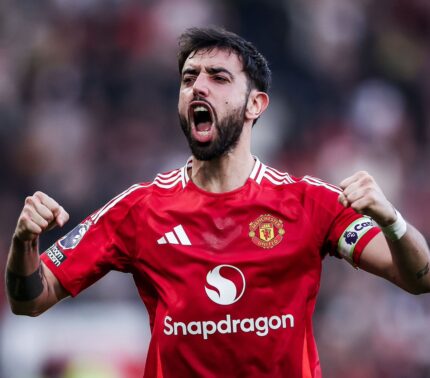Todd Boehly: Chelsea Football Club may soon face a shake-up at the top, as co-owner Todd Boehly has hinted that disagreements over the club’s stadium redevelopment plans could cause a split among its current ownership group. The American businessman emphasized that consensus on the future of Stamford Bridge is crucial to maintaining the partnership with majority shareholder Clearlake Capital. If not, it might be time for some boardroom musical chairs.
The Grand Dilemma: Rebuild or Relocate?
At the heart of this conflict lies a question that has troubled Chelsea for over a decade: should they renovate the historic Stamford Bridge or pack up and build a brand-new stadium elsewhere? One option keeps the club rooted in tradition but poses logistical nightmares. The other promises modernity but means venturing into the unknown.
Stamford Bridge, nestled in a densely packed area of West London, has limited expansion opportunities due to its surroundings—homes, businesses, and railway lines make a straightforward redevelopment impossible. On the flip side, alternative sites like Earls Court offer more room to maneuver but carry the risk of alienating traditional fans who cherish the Bridge’s rich history.
A Troubled Past: Chelsea’s Stadium Saga
This isn’t Chelsea’s first rodeo when it comes to finding a stadium solution. Back in 2012, the club made an ambitious attempt to purchase the iconic Battersea Power Station for a futuristic football haven—only to see the plan go up in smoke. In 2017, a grand design for a new Stamford Bridge was proposed, but financial and planning constraints saw it shelved.
Now, with new ownership at the helm, the debate has reignited. Todd Boehly and Clearlake need to decide whether they’ll take on the challenge of squeezing a world-class stadium into the Bridge’s footprint or start fresh elsewhere—before rivals like Tottenham and Arsenal leave them in the dust with their modern venues.
Todd Boehly’s Vision: More Than Just Football?
Todd Boehly has hinted at a forward-thinking approach, suggesting a new or redeveloped stadium should be more than just a home for Chelsea. He’s reportedly keen on a multi-sport venue akin to Tottenham Hotspur’s state-of-the-art stadium, which hosts everything from Premier League matches to NFL games and concerts.
The idea isn’t just about football—it’s about transforming Chelsea’s home into an entertainment hub, capable of bringing in revenue beyond matchdays. While this might sound exciting to business minds, convincing die-hard Chelsea fans that their sacred turf should double as an events venue could be a tougher sell.
The Stakes: Falling Behind the Competition
No matter which direction Chelsea takes, one thing is clear—stalling on stadium development could cost them dearly. Rivals such as Manchester City, Liverpool, and Tottenham have all upgraded their facilities, securing additional revenue streams and improving their matchday experience.
Chelsea, despite spending heavily on new signings, still operates with a stadium capacity far below its biggest competitors. If they don’t resolve this issue soon, the financial and competitive disadvantages could start to show, leaving them playing catch-up both on and off the pitch.
What’s Next? Decision Time for Chelsea’s Owners
With the ownership group potentially at odds over the best path forward, Chelsea fans can only wait and see whether Todd Boehly and Clearlake Capital can find common ground—or if a split at the top is inevitable. Whatever happens, one thing is certain: Stamford Bridge’s fate is set to be one of the biggest off-field dramas in the Premier League this year.
Will the Blues stay true to their historic home, or will they chase a futuristic stadium dream elsewhere? The battle lines are drawn, and the decision will shape Chelsea’s future for decades to come.














